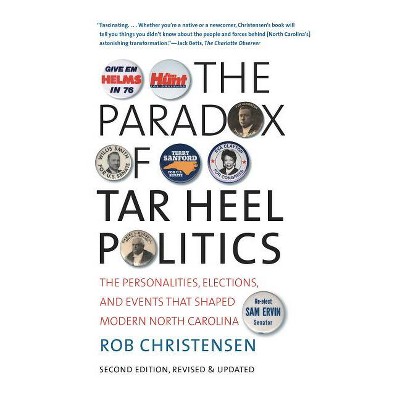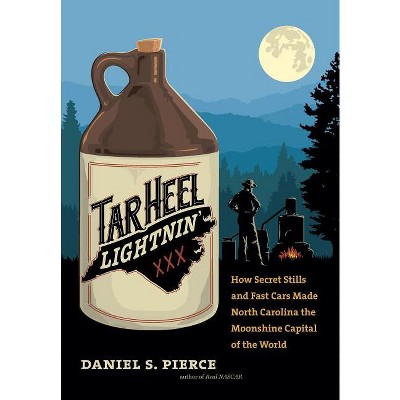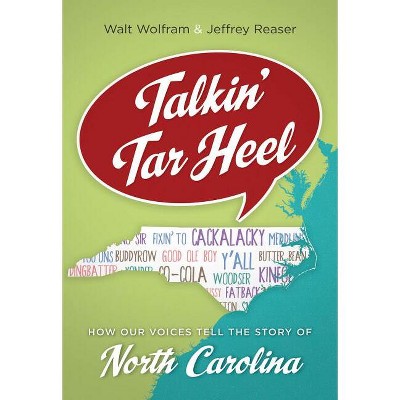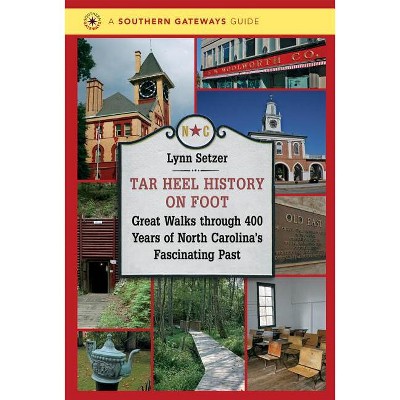Sponsored

Tar Heel Politics 2000 - by Paul Luebke (Paperback)
In Stock
Sponsored
About this item
Highlights
- Offering an insightful analysis of North Carolina political trends and personalities, Paul Luebke moves beyond the usual labels of Republican and Democrat, conservative and liberal.
- About the Author: Paul Luebke is both a sociologist and a state legislator.
- 288 Pages
- Political Science, American Government
Description
About the Book
An updated and revised analysis of N.C. political trends and personalities. Luebke offers insights on developments in taxation, education, transportation, and the environment, and makes predictions about the future of NC politics.Book Synopsis
Offering an insightful analysis of North Carolina political trends and personalities, Paul Luebke moves beyond the usual labels of Republican and Democrat, conservative and liberal. In Tar Heel Politics 2000, he argues that North Carolina's real political battle is between two factions of the state's political and economic elite: modernizers and traditionalists. Modernizers draw their strength from the bankers, developers, news media, and other urban interests that support growth, he says. Traditionalists, in contrast, are rooted in small-town North Carolina and fundamentalist Protestantism, tied to agriculture and low-wage industries and threatened by growth and social change. Both modernizers and traditionalists are linked with politicians who represent their interests.An updated and revised version of Luebke's Tar Heel Politics: Myths and Realities (1990), Tar Heel Politics 2000 highlights the resurgence of the southern Republican Party for the first time in a century and discusses a number of significant changes that have occurred over the last decade. These include the institutionalization of a viable two-party system in the General Assembly, the further shift of native-born whites throughout the South into the Republican voting column, and ideological conflict in North Carolina that parallels to some extent the post-1994 battles between the Republican Congress and the Clinton White House. In addition, the book provides a detailed analysis of the political appeal of Senator Jesse Helms and draws on Luebke's insights as a member of the North Carolina State House since 1991.
Review Quotes
A useful analysis of our state s political trends and personalities.
"Our State"
A useful analysis of our state 's political trends and personalities.
"Our State"
A useful analysis of our state_s political trends and personalities.
"Our State"
[T]he best book ever written about modern North Carolina politics.
Merle Black, Emory University
A useful analysis of our statea[s political trends and personalities.
"Our State"
ÝT¨he best book ever written about modern North Carolina politics.
Merle Black, Emory University
A useful analysis of our states political trends and personalities.
"Our State"
His provocative critique will change the way you think about North Carolina politics.
Ed Williams, Editorial Page Editor, "Charlotte Observer"
Paul Luebke understands North Carolina politics like no one else.
John Shelton Reed, coauthor of "1001 Things Everyone Should Know about the South"
"[T]he best book ever written about modern North Carolina politics.
Merle Black, Emory University"
"His provocative critique will change the way you think about North Carolina politics.
Ed Williams, Editorial Page Editor, "Charlotte Observer""
"Paul Luebke understands North Carolina politics like no one else.
John Shelton Reed, coauthor of "1001 Things Everyone Should Know about the South""
A useful analysis of our stateUs political trends and personalities.
"Our State"
The best contemporary southern state political analysis in print.
"Journal of Southern History"
About the Author
Paul Luebke is both a sociologist and a state legislator. He is associate professor of sociology at the University of North Carolina at Greensboro. Since 1991, he has represented Durham in the North Carolina House of Representatives.











